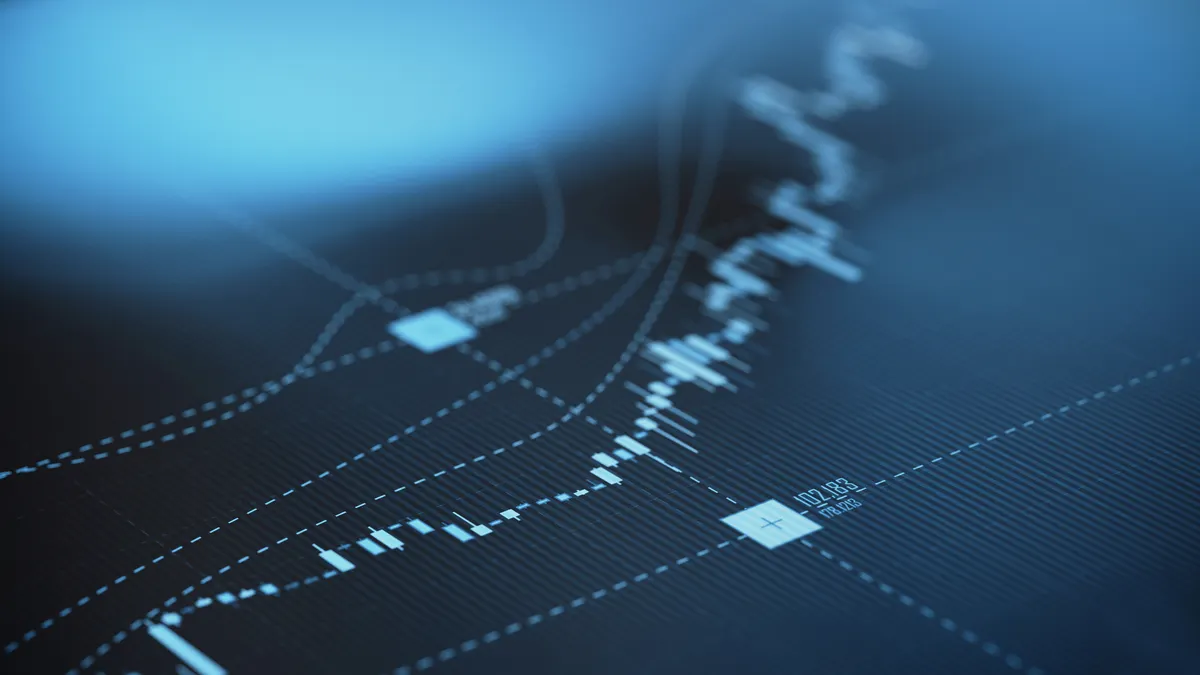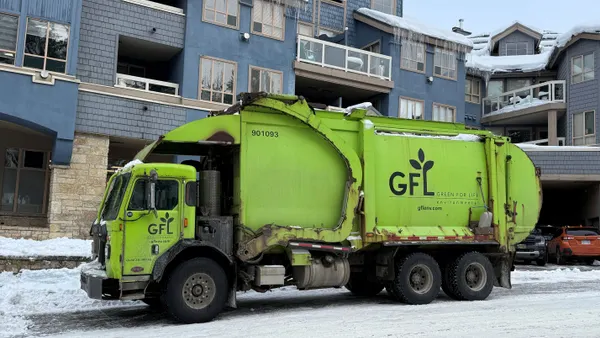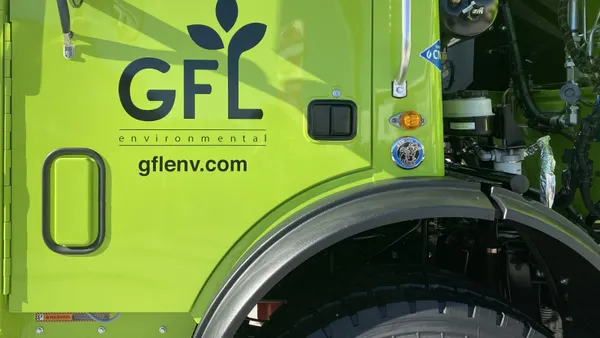Dive Brief:
- Prairie Robotics, a Canadian firm that offers artificial intelligence-enabled camera systems for recycling collection trucks, is expanding its partnerships with municipalities in North America that want to reduce contamination in their curbside streams. The company works with about 40 cities in the U.S. and Canada.
- The company recently partnered with the City of Tacoma, Washington, on a two-year project to help educate residents on what can and cannot be recycled in the city’s curbside program. It’s funded by a $1.8 million grant from the U.S. EPA, announced in 2023 as part of the agency’s Recycling Education and Outreach grant program.
- Prairie has also recently launched partnerships in Centerville, Ohio; Livermore, California; and Springdale, Arkansas, “with more that are in the pipeline,” said CEO Sam Dietrich. The company also works with haulers such as GFL Environmental and Waste Connections, who use the tech’s data to track metrics including bin set-outs or overfilled containers.
Dive Insight:
Collection vehicles have long had cameras meant for safety and fleet management reasons, but Prairie is among the companies capitalizing on a newer use for AI-enabled on-truck cameras: measuring recycling contamination in real time.
The system can detect contamination, such as food waste or trash, at the moment the material enters the recycling truck. Then, it determines the origin of that contamination and can send customized messages or postcards to residents at the associated address with pointers on how to recycle correctly.
The technology has gathered momentum in the last few years as municipalities and private haulers both grapple with contamination-related costs and seek better ways to achieve cleaner, higher-value recycled commodities, Dietrich said.
Through its use of Prairie’s cameras, Tacoma aims to gain insight into residents’ recycling habits and use the data to better tailor recycling and contamination messaging
“Contamination impacts how we can deliver services and the cost of those services for all residents,” said Lewis Griffith, Tacoma’s Solid Waste Management division manager, in a news release announcing the program. “Educating residents on what is accepted in our curbside program, and reducing contamination, can have positive impacts on the program for all residents of Tacoma.”
The pilot will roll out to residential recycling routes in phases over the next year. Tacoma officials say some neighborhoods will begin receiving postcards starting this month, but residents won’t face fines or other penalties for contamination during the pilot.
The project will continue “through the life of the grant” and is expected to be reviewed in June 2027, according to the city’s Environmental Services Department.
Dietrich said Prairie Robotics can tailor its “toolbox” of services for each municipality’s needs. Tacoma wanted the ability for its route supervisors to manage and monitor contamination within the areas they’re assigned, as opposed to some other cities that examine the data on a citywide or regional basis, he said.
“Every municipality is running a very similar program in terms of what the deliverables are, but they're all running it in their own unique way and use case,” Dietrich said.
Some municipalities mainly want Prairie’s services as a way to send personalized postcards to the households with the highest contamination rates, while other cities have added a feature that sends a formal warning letter after three strikes. “It gives municipalities the ability to, through our platform, automatically escalate that education,” he said.
Some municipalities are more interested in tracking specific kinds of recycling, organics or green waste diversion, or tracking such diversion rates during set periods of time, he said. In Olympia, Washington, the city accesses that data from a mobile app, which helps determine where employees will go to conduct in-person “lid lift” audits.
These audits are for households “with those repeat, continuous issues that don’t improve with a postcard alone,” he said. “I think a lot of people see our technology is fully automated... But for communities that explicitly want to continue that feedback [in person], we're happy to support that, too.”
Haulers with commercial contracts have also used the technology to help narrow down where specific contamination might originate from on a building to building basis, he said.
“What we've seen is that waste haulers want to see this data in real time. They want to be able to have their teams engage commercial clients the same day to resolve these issues,” he said.
Many of the projects start as a pilot. Dietrich said the majority of the cities where Prairie operates are now on a long-term, recurring contract. It still operates in Regina, Saskatchewan, the location of Prairie’s first project.
Prairie is also expanding its technology to be more integrated with other recycling technologies and apps, he said. The company can now sync its technology with apps like Recycle Coach, which helps residents set up collection day reminders and offers sortation pointers for a particular region.
In the Okanagan region of British Columbia, for example, Recycle Coach subscribers will receive in-app notifications from Prairie based on contamination data from their address.
This story first appeared in the Waste Dive: Recycling newsletter. Sign up for the weekly emails here.














